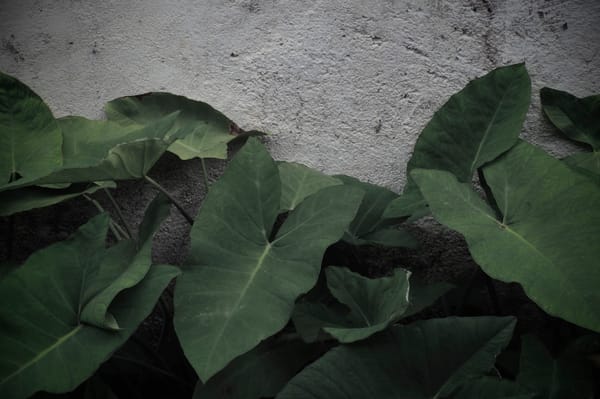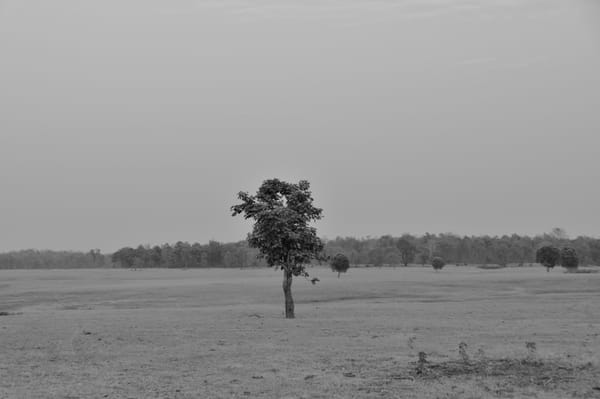Spirit of a Place: Existential Foothold
Good morning Ladies and Gentlemen,
Today I want to talk about a concept, an idea that is abstract but at the same time can be applied to the concrete. It is at the intersection of education, philosophy and architecture. I will start with something general, apply to the concrete by contextualising it and then hopefully zoom back out to get a sense of where we have been.
Education, philosophy and architecture are all very peculiar subject areas. Everyone has an opinion about it and mostly contrarian, in that they would like to change the current state of affairs. Perhaps they have an opinion about these areas because they experience these things on a daily basis and unfortunately they are not something that everyone feels good about. Hence, the contrarian approach. There never goes a day when you don’t experience the architecture of the place you’re in, or you don’t argue about how things should be, with yourself or others, and there is always a residue of memories, good and bad, about one’s own education. I am particularly prone to all of the above. Particularly because I started a school, The Northstar School, with my family and friends.
I returned to India from the US in 2013. For two years I thought and thought about building a school. About creating an institution meant for learning and growing. Where education is an end in itself and not a means for future goals. I thought and thought but I did what a smart person should have done. I didn’t act. Just thinking about it was giving me more pleasure to be honest. I was thinking about an ideal place, a perfect place for kids and educators and myself too. I think I procrastinated for quite some time to my heart’s satisfaction. But I knew this couldn’t last. One of those days, I came across the Norton lectures at Harvard University. Norton lectures of 1967 were given by Jorge Luis Borges. In one of the lectures Borges told a story about a young author from a small quaint little town. The young man wanted to become the greatest author of the world, greater even than the great author of Don Quixote, Cervantes himself. He worked and worked for years. After many years, he produced the most sublime 2 paragraphs, greater than any work Cervantes ever produced. Alas, we don't remember him, do we? This story was serendipitous for me, not only because it spoke directly to me, but also because Borges was speaking at Sanders theatre at Harvard, and I could picture him looking at me slantingly. I realised that perfection can come in the way of action. I can’t say I have fully recovered from it. Borges said, “The Universe is an unstable world of the mind, a labyrinth, a chaos, a dream”. For the longest time now, I have been thinking about how architecture and the built environment may provide us some anchor, some stability in the maddening chaos that we find ourselves in.
In this great city of Ahmedabad, I met a person who put me on this path of thinking about space and place. He told me something that had a profound effect on the way I think about the built environment. He said, a building takes up space, but a great building creates a place.
When I started to think about the built environment of my school, I was deeply influenced by the phenomenological tradition. Before we go into the built environment or place, I want to share my underlying view on education and its purposes. I think that the foundations of a learning institution are not the board or the curriculum, they are the fundamental philosophical ideas that the founders and educators hold. It is fairly prevalent lately to talk about reinventing education. We hear talk about new models of learning, or new technologies or a cool new app that is going to redefine education. We even hear talks about changing the world with education. We routinely despise the factory model of education, and rightly so. We are quick to resent the associated vocabulary, words such as “batch”, “output”, “raw materials”, etc. But we have tacitly agreed to another inherent model, which is one of subservience of education to the “market”. We do not find it problematic to talk about education as a means to solely economic outcomes. Terms like”preparing students for knowledge economy”, “for the jobs of the future” betray a thought process that makes education mere economic instrumentalism. While I believe in the reform movement, I think the first step is to think about education and its associated processes in its due context, which is one of incredible complexity. I believe that education is an end in itself and not a means for future goals and hence the first and perhaps the most important function of a school is to create conditions for learners to find their existential foothold. By existential foothold I mean finding a place of our own both in the outward external world and also inward internal world of our own.
One way to think about the external world is in terms of arrangement of space. And space is defined by its boundaries. Boundaries between the inside and the outside. Boundaries of the built spaces are floor, walls and the ceiling which disconnect you from the outside. While outside also has its analogous boundaries namely the ground, the horizon and the sky.
Boundaries enclose spaces and this enclosure is defined by the openings such as windows and doors and thresholds. Now this space, with its boundary conditions, possesses a character. You might think of this classroom as being perhaps regimental, perhaps old fashioned.
But what is the antithesis of such a space? Maybe a classroom with A/C and nice floor and colors and perhaps a smartboard.
Now, both these rooms have a certain character which fundamentally defines how people feel in side there. The question is, is the character of these two room fundamentally different? Are the boundaries and the openings different?
This is a regular day at Northstar. The boundary conditions are not solid, they are porous. The inside and the outside merge. It becomes a place. We must understand that the concept boundaries are both literal and metaphorical. While we think about the boundaries of the space, we must also think about other boundaries. Boundaries between subjects. Science is science, math is math, english is english. Boundaries between the school and the community. Boundaries between teachers and students. Are there openings in the subjects for other subjects to seep in? Is the school closed to the community? These things along with the space define a character. It's not just the arrangement of furniture or having new gadgets or particular ways of organising the curriculum.
Now we are gaining some existential foothold at least in space. But I want to add one more dimension to this physical orientation. We need to not only orient in space but also in time. We recently had an event at the school, where kids show their parents what they have been learning in the school. One little girl of kindergarten class was explaining her parents what a plant needs to grow. So she says, “It needs soil and water and sunlight”. Everyone is quite happy with the answer. Then after a moment she says, “Oh wait, they also need a lot of love and care!” It’s such a beautiful example of kids having an innate sense of compassion. I think the key component of that compassion for plants is the thought that it needs time to grow. We are day in and day out being fed the idea of change, this rapid change. If you want to hang on you better speed up. That is the message of today. But it's useful to remind everyone that our basic needs never change. The need to be seen and appreciated. The need to belong. The need for nearness and care and love. This is given only through slowness, reflection and togetherness. There we will find real renewal. For kids and adults to really experience this slowness, reflection and togetherness they need to have the temporal sense of nature, an orientation in time. Change is seen as a momentary and a certain event. We rarely have the experience of the transient and slow. Our society, powered by today's technology, lives by support of instantaneous tools. To be really in sync with oneself and nature is to understand and experience the time scale of nature around us. To be able to pause, observe, think and and reflect. Our society and education system favours the completion of concepts over understanding of ideas. We confuse faster with better and efficiency with effectiveness.
One way to orient in time would be do engage in activities are more in line with natural timescales, not the time scales that we are taught and habituated to. We started a Horticulture program at our school. Nothing is instantaneous about gardening and growing. It takes days for seeds to germinate, weeks to mature and fruit. Kids having planted their own vegetables and grains have to wait, observe, nurture. We want our kids to acquire scientific understanding, growing closer to nature, appreciating labour. But also get a sense of the time scales of the natural world. To be in temporal sync with nature.
Now, we’ve talked about existential foothold in the external world - Orientation in spatial and temporal sense. I think it’s equally important to find existential foothold in the internal world as well. School is a place where a child forms relationships with herself and others. She also learns to place herself in the bigger scheme of things. Given the incredibly complex and confusing world that we live in, it is now more than ever necessary to give intellectual tools to children to make sense of the world around them. We are not giving our children the capacity to hold complex thoughts in our heads and process complexity with critical and authentic approaches. We are habituated with offloading our cognitive work to devices. While I do understand and support the offloading of complex with mathematical operation to a calculator or reminding me of my meeting to the intelligent computer, the problem arises when we and particularly our kids extend the offloading habit to more complex and decidedly humane matters. We must give our kids the approaches and tools by which to strengthen their minds so that they don't have to offload their own thinking and they can appraise issues for themselves.
In the hope to address the above issue and to strengthen our minds we started a philosophy program in our school. The word philosophy and school hardly go together and expectedly so. We associate philosophy with something that is difficult and something that people do when there is not much to do of practical value. Moreover, school kids are not expected to be intellectual mature enough to grasp and participate in philosophical analysis. Our philosophy program called “Noesis” is a community dedicated to liberal education with the goal being the pursuit of fundamental knowledge and unifying ideas. We study great works of art, particularly the written word, that are both timeless and timely. When a great book is read as a community it brings us closer and develops shared understanding. I need to clarify here on the kinds of works that we read and discuss. I am not talking about new-age motivational or self-help works masquerading as philosophy. We strictly avoid inauthentic profundity. We do no patronize kids by lowering intellectual demands rather we create appropriate scaffolds. We study great works of the world from ancient Greeks like Socrates and Plato to modern masters like Hume and Nietzsche. We also take great literary works of ancient India and the East to western greats like Dostoevsky and LeGuin. We read seminal works which present complex and authentic ideas. We learn to grapple with them. The process of understanding and searching for answers more is important the answer itself. Now, more than ever, we need our kids and by extension our society to read, discuss and inquire into the great ideas of the world, so that they may find their internal existential foothold.
I will conclude by impressing upon you that schools are one of the last bastions to experience the common, the shared and the greater. Spirit of the school should be to help all of us to find our foothold, whether it is in space by seeing and dissolving boundaries, whether it is in time by being able to tune in with time scales of nature or within ourselves by giving opportunities and tools to find our place in the world.
**This is a transcript (sort of) of my TEDx Talk at Nirma University**



